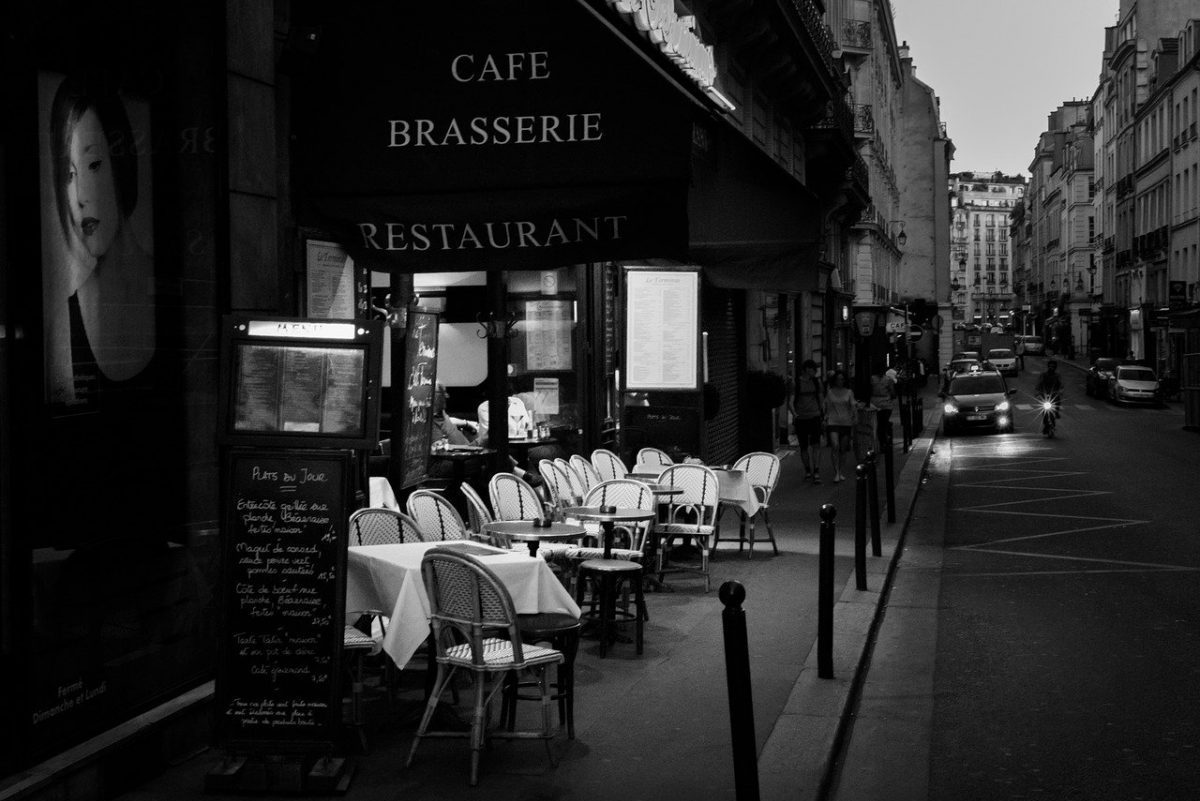Restaurants in Paris have all closed until further notice in an attempt to prevent the spread of Coronavirus. This category also includes bars and cafés. Supermarkets, pharmacies, and bakeries will be allowed to remain open.
Here’s a snapshot of what’s been happening over the last few days.
Voluntary Risk Reduction
Before March 14, in advance of the official policy, some restaurateurs had already decided to close their doors. Others were taking measures such as reducing tables in the dining room, avoiding shaking hands with clients and with one another, requiring staff to wash their hands every 20 minutes, and going cash-free to reduce the likelihood of spreading the virus. Many, like Le Servan, posted hopeful messages on Instagram detailing their policies and encouraging locals to support local businesses.
The Mandatory Shut-Down
Following more than 4,400 confirmed cases of COVID-19 in France, Prime Minister Edouard Philippe announced on Saturday afternoon that the government would be asking all non-essential businesses to close their doors by midnight, nine hours later.
Restaurants Selling What They Can
In an attempt to cut down on food waste following the sudden forced closures, many restaurants began using Instagram to advertise leftover food. Le Mary Celeste was selling what was left of its oysters; Ten Belles, meanwhile, is giving away sourdough starters so that people can bake bread at home.
Some restaurants remain open for takeaway or delivery (see below). Deliveroo, a European delivery service, has launched contactless delivery in an attempt to stymy contamination. Circus Bakery launched its own sustainable bread delivery service in central Paris.
Restaurants Donating their Food to Charities
Other restaurants are donating leftover food to the needy, facilitated in part by groups like Linkee, which safely transports food to associations like Restos du Coeur and Emmaüs. This is especially important following school closures, in effect as of March 9, Atabula reports. Schools and hospitals regularly provide unused food to these programs, which also rely on unsold food from supermarkets.
Impact of Coronavirus on Paris Restaurants
These imposed closures, while a necessary measure to protect public health, are only the latest blow to Parisian restaurants. The “yellow vest” protests that began in December 2018 had already dramatically reduced the revenue of many restaurants. Then, in December 2019, one of the longest and most devastating strikes in Parisian history dealt a second blow to local restaurants’ viability. During the two-month strike, which ground most transportation to a halt, restaurants and hotels lost between 30-50% of their revenue.
“We were finally seeing a bit of cash-flow coming back in post 1 year of yellow vests protests followed by the epic retirement strikes who destroyed December and January for us, and now this!” writes Holybelly. “I just don’t see how we’ll keep going much longer… our buffer is long gone… small businesses like us live thanks to their customers, thank you for your support!”
While France has yet to impose full quarantine like Italy, restaurateurs remain unsure how long they will need to remain closed to contain the virus. Some restaurants, like La Bête Noire, are even asking for help from patrons to help them ride out the forced closures.
For now, the French government has banned gatherings of more than 100 people and is recommending self-isolation until the pandemic’s curve has flattened and the virus has been contained.
We’ll be monitoring the Impact of Coronavirus on Paris Restaurants on our website and through our newsletter. We’ll also be reposting from the restaurants we follow on our Instagram and Facebook accounts. Our hearts are with these wonderful people who have fed us so well, and are now wondering how they’ll bounce back.
Restaurants Sharing the Impact on Their Business
French Humor
